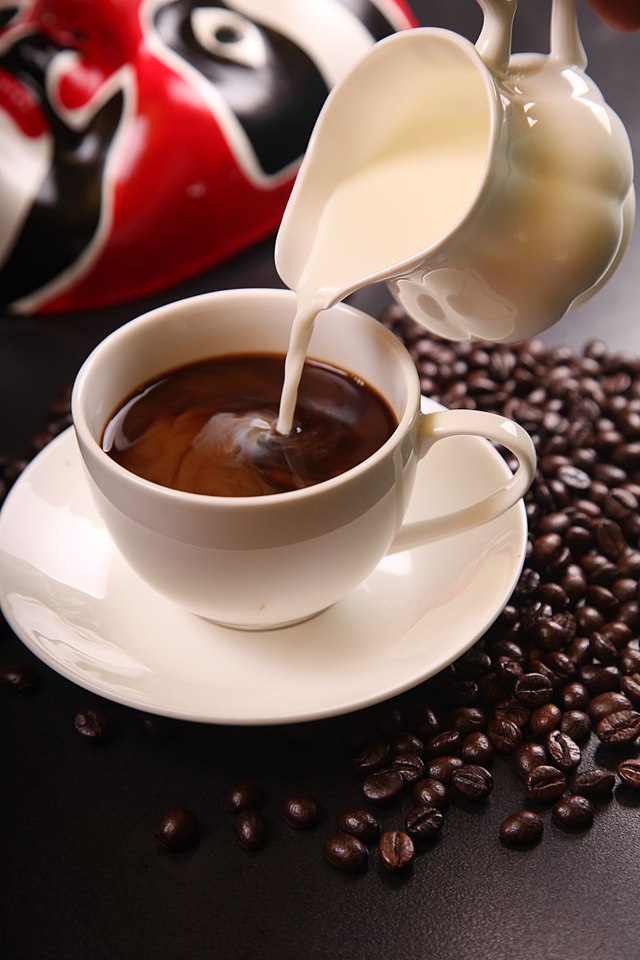Top Qs
Timeline
Chat
Perspective
Latte
Beverage made with espresso coffee and milk From Wikipedia, the free encyclopedia
Remove ads
Latte[a] (/ˈlɑːteɪ, ˈlæteɪ/)[1][2] or caffè latte (Italian: [kafˌfɛ lˈlatte]),[3][4] also known as caffè e latte, caffellatte or caffelatte, is a coffee drink of Italian origin made with espresso and steamed milk, traditionally served in a glass.
The term latte comes from caffellatte[5] or caffè latte (from caffè e latte, lit. 'coffee and milk'); in English orthography, either or both words sometimes have an accent on the final e (a hyperforeignism in the case of *latté).
Remove ads
Definition and etymology
Summarize
Perspective
Definition

A caffè latte consists of one or more shots of espresso, served in a glass (or sometimes a cup), to which hot steamed milk is added.[6] The difference between a caffè latte and a cappuccino is that the cappuccino is served in a small 140 mL (5 US fl oz) cup with a layer of thick foam on top of the milk, and a caffè latte is served in a larger 230 mL (8 US fl oz) glass (or cup), without the layer of thick foam.[7] Thus, a caffè latte is much milkier than a cappuccino, resulting in a milder coffee taste. The way the milk is steamed for a caffè latte results in very fine bubbles being incorporated in the hot milk. This microfoam can be poured in such a way as to form patterns in the white microfoam and brown crema (latte art). The texture of the microfoam changes the taste and feel of the drink.[8]


A similar drink is the latte macchiato, which is also served in a glass, but the espresso is added to the glass after the steamed milk.[6] In Italy, milky coffee drinks such as caffè latte, latte macchiato, and cappuccino are often prepared for breakfast only.[9]
In the United States, a latte is often heavily sweetened with 3% sugar (or even more). These sweeteners usually come in the form of refined white sugars, artificial sweeteners or agave syrup.[10]
Etymology
According to the Oxford English Dictionary, the term caffè e latte was first used in English in 1867 by William Dean Howells in his essay "Italian Journeys",[11] but as this preceded the spread of espresso machines, this drink would have been "nothing like the lattes found today at specialty coffee shops".
Remove ads
History
This section needs expansion. You can help by adding to it. (July 2025) |

Origin
The drink is thought to have "technically originated" in 17th-century Europe.[12] In William Dean Howells' "Italian Journeys", he notes that he was served the beverage on a steamship when traveling from Trieste to Venice.[13]
The modern caffè latte appeared in the 20th century, following the invention of the espresso machine in the 19th century.[14] This was made possible by the addition of the steam wand to the espresso machine in 1903, which made it possible to add heat and texture to milk added to coffee.[15]
Remove ads
See also
![]() Media related to Latte at Wikimedia Commons
Media related to Latte at Wikimedia Commons
Notes
- In Italian latte means 'milk'.
References
Wikiwand - on
Seamless Wikipedia browsing. On steroids.
Remove ads

